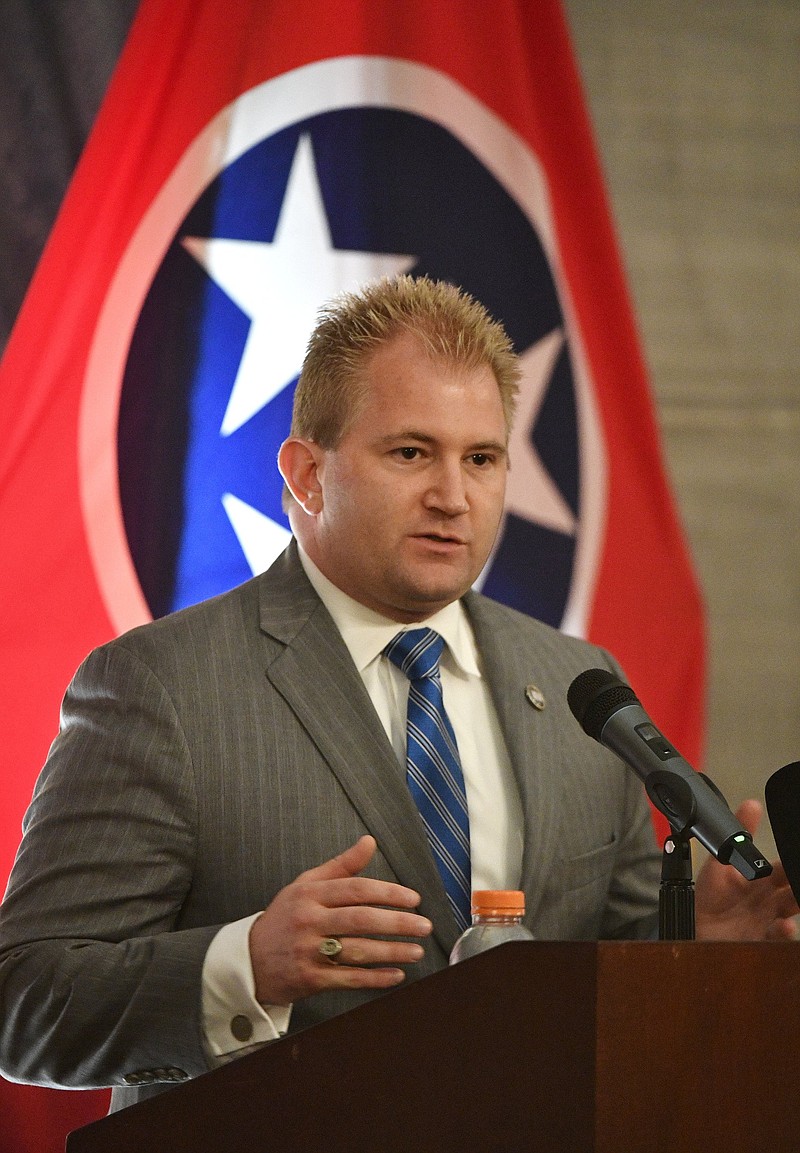NASHVILLE - The Tennessee General Assembly ended its annual session early Friday morning after failing to come to agreement on an effort by businesses, schools, nonprofits and others to make it tougher for people to win COVID-19 liability lawsuits.
A conference committee report that sought to iron out differences between the House and Senate chambers on the proposed Tennessee Recovery and Safe Harbor Act received 46 votes for passage in the House but needed 50 for approval.
It was the last remaining major bill on lawmakers' agenda. Shortly after the bill failed at 2:40 a.m. CDT, lawmakers ended their annual legislative session.
The bill was brought by a 30-group coalition spearheaded by the Tennessee Chamber of Commerce and Industry. It sought to change the legal standard for people filing claims from the coronavirus, which so far has infected 32,829 Tennesseans, with 509 dead and 2,209 hospitalized.
Under the measure, qualifying businesses or other entities wouldn't have been liable for any "damages, injury or death" from anyone allegedly contracting the coronavirus at their establishment unless the claimant could prove "gross negligence or willful misconduct" in that the entity didn't comply with public health guidelines.
The bill sought to extend its shield of protection for businesses back to March 5, when the first known coronavirus case was reported in Tennessee. That retroactivity provision is what killed the legislation.
"There is nothing more clear in the Tennessee Constitution than we can't change the rules midway through the process," said House Majority Leader William Lamberth, a Portland Republican, attorney and former state prosecutor who voted no.
While acknowledging "there's been an enormous amount of work" done on the bill, Lamberth told the chamber, "I have had constituents who've died from COVID in a nursing home. And all I asked in this bill that it not be retroactive - or at least a little retroactive."
Others pointed out that the Tennessee Constitution's Article I, Section 20, states, "no retrospective law, or law impairing the obligations of contracts, shall be made."
Former House Speaker Glen Casada, R-Franklin, sought to counter that, citing a legal opinion he said was once issued by then-Tennessee Supreme Court Justice William Koch. It "said it can be retroactive if they advance the public interest" and an entity's rights, Casada said. "It's what we need to protect our businesses in Tennessee."
The Tennessee Chamber and others had argued the bill was necessary with employers needing assurances they can resume operations without facing a wave of lawsuits. Critics said that workers and others already face a high barrier to receiving restitution from businesses that may place them at risk.
It was a rare and big legislative loss for the Tennessee Chamber and coalition members.
Among those who spoke against the bill on the floor was Rep. Mike Carter, an Ooltewah Republican, attorney and former judge. He had raised concerns about it earlier in a House committee and unsuccessfully sought to amend it at the time.
Carter said the cleaner solution would have been to state "there simply is no cause of action for a suit against COVID-19. That protects everyone."
The bill was carried in the Senate by Judiciary Committee Chairman Mike Bell, R-Riceville, who along with many Senate colleagues and others resisted efforts to strip out the retroactivity section of the bill. Bell said the bill was seeking to protect businesses and others who at times were grappling with no or little guidance and then constantly evolving, multiple health orders or guidance from Gov. Bill Lee, who supported the bill, and others.
The bill had a severability clause designed to keep the remainder intact if any provision was found unconstitutional. Bell and others said that would be sufficient to protect the core business protections in the legislation.
Rep. Patsy Hazlewood, R-Signal Mountain, said the severability clause bothered her, asking "what happens to pending lawsuits, potential lawsuits until the severability clause is invoked or when? . . . We would leave a lot of people in limbo while this is litigated and there's no doubt about that. I'm not an attorney, but it does seem to me that it would be commonsense wrong to just change the rules."
Another Southeast Tennessee House member, Rep. Robin Smith, R-Hixson, a nurse by training, told colleagues she was supporting the bill, recalling the situation that developed when AIDS first appeared in the 1980s with no guidelines.
"It's not the rich and powerful" who benefit from protections, Smith said. She added, "I'm going to stand with schools and dorms . . .even healthcare providers."
Contact Andy Sher at asher@timesfreepress.com or 615-255-0550. Follow on Twitter @AndySher1.
